In the rhythmic tapestry of Peruvian music, Susana Baca emerges as a luminary, a custodian of Afro-Peruvian heritage, and a voice that resonates with the resilience of a rich cultural legacy. Born on May 24, 1944, in Chorrillos, Peru, Baca’s journey from the coastal shores of her homeland to the global stage embodies the spirit of Afro-Peruvian musical revival. This blog unveils the captivating biography of Susana Baca, exploring her early influences, cultural activism, and the indelible mark she has left on the world of music and cultural preservation.
Roots in Chorrillos:
Susana Baca’s roots are deeply embedded in the Afro-Peruvian community of Chorrillos, a coastal district of Lima. Growing up in a neighborhood with a vibrant Afro-Peruvian culture, she absorbed the rhythms, traditions, and oral histories that would later become the foundation of her musical journey. Chorrillos, with its Afro-Peruvian heritage, provided the fertile soil for Baca’s artistic seeds to germinate.
Early Musical Influences:
Baca’s love affair with music began in the household, where the melodies of criollo and Afro-Peruvian tunes filled the air. The profound influence of her grandmother, Victoria, a former slave who shared traditional songs and stories, became a guiding force. These early exposures to the rich oral traditions of Afro-Peruvian music instilled in Baca a deep appreciation for her cultural heritage.
Afro-Peruvian Traditions and Oral History:
Afro-Peruvian music is more than a genre; it is a living testament to the resilience and cultural amalgamation of Peru’s Afro-descendant population. Rooted in African, Spanish, and indigenous influences, this musical tradition often served as a form of oral history, preserving the experiences and expressions of Afro-Peruvian communities. Susana Baca’s immersion in this tradition became a pivotal aspect of her artistic identity.
Formation of Grupo Cumanana:
In the late 1960s, Susana Baca became a founding member of Grupo Cumanana, a musical ensemble dedicated to preserving and promoting Afro-Peruvian music. This venture marked the beginning of her mission to elevate Afro-Peruvian rhythms from local traditions to a wider, national audience. Grupo Cumanana’s performances became a cultural bridge, connecting audiences with the deep-rooted musical heritage of Peru’s Afro-Peruvian communities.
Academic Pursuits and Ethnomusicology:
In addition to her artistic endeavors, Susana Baca embarked on academic pursuits that would further enrich her understanding of Afro-Peruvian traditions. Studying ethnomusicology, she delved into the academic exploration of the cultural roots of Afro-Peruvian music. This dual commitment to both practice and scholarship positioned Baca as a unique figure in the music scene, bringing an informed perspective to her artistic expressions.
Exile and Cultural Activism:
The 1970s marked a tumultuous period in Peru’s history, with political upheavals leading to Baca’s exile to France. However, rather than silencing her voice, this period abroad became a catalyst for cultural activism. In the diaspora, Baca amplified her advocacy for Afro-Peruvian culture, collaborating with international artists and sharing the soulful sounds of her homeland on global stages.
Return to Peru and Vocal Renaissance:
Baca’s return to Peru in the 1980s coincided with a cultural renaissance, marked by a renewed interest in Afro-Peruvian traditions. Her vocal prowess and emotional delivery garnered attention, leading to collaborations with prominent musicians and an increasing recognition of her role in revitalizing Afro-Peruvian music. Baca’s voice, with its haunting beauty and cultural depth, became a symbol of the resilience and pride of Peru’s Afro-Peruvian communities.
Afro-Peruvian Music on the Global Stage:
Susana Baca’s efforts to bring Afro-Peruvian music to a global audience gained momentum in the 1990s. Her collaborations with musicians like David Byrne of Talking Heads introduced Afro-Peruvian rhythms to international ears. Baca’s participation in diverse musical projects showcased the versatility of Afro-Peruvian music and its capacity to transcend cultural boundaries.
Tana: A Tribute to Chabuca Granda:
In 2002, Baca released “Tana,” a tribute album dedicated to the legendary Peruvian singer and composer Chabuca Granda. The album, named after Baca’s nickname, not only paid homage to Granda but also showcased Baca’s interpretative brilliance. “Tana” earned critical acclaim and reinforced Baca’s standing as a premier vocalist with a deep connection to Peru’s musical legacy.
Minister of Culture and Cultural Advocacy:
In 2011, Susana Baca assumed the role of Minister of Culture in Peru, bringing her passion for cultural preservation to the forefront of national policies. Her tenure was marked by initiatives to safeguard Peru’s cultural heritage, support for traditional artists, and a commitment to fostering a national identity rooted in the diversity of its cultural expressions.
Grammy Recognition and Musical Legacy:
Susana Baca’s artistic achievements have been recognized with numerous awards, including a Grammy Award for Best Folk Album in 2002. This prestigious accolade brought international attention to Baca’s contributions to the world of folk and Afro-Peruvian music. Her legacy extends beyond awards, encompassing a lifelong commitment to preserving and promoting the cultural richness of Peru.
Legacy of Afro-Peruvian Cultural Revival:
Susana Baca’s biography is intertwined with the legacy of Afro-Peruvian cultural revival. Through her artistry, advocacy, and academic contributions, she has played a pivotal role in ensuring the visibility and recognition of Afro-Peruvian traditions. Baca’s work is a testament to the enduring power of music to elevate cultural narratives and bridge historical divides.
Conclusion:
Susana Baca’s life story is a harmonious blend of artistic brilliance, cultural activism, and a deep-rooted commitment to preserving the legacy of Afro-Peruvian music. As the embodiment of Peru’s Afro-Peruvian heritage, Baca’s voice echoes through the annals of cultural history, reaching audiences around the world. Her biography is a testament to the resilience of a people, the transformative power of music, and the enduring legacy of a woman whose voice transcends time, carrying the soulful heartbeat of Afro-Peruvian traditions into the future. In the lyrical verses of Susana Baca, Peru’s cultural heritage finds not just a voice but a resounding anthem that celebrates the richness of its Afro-Peruvian roots.
.- Youtube Feature Video: Susana Baca – Negra Presuntuosa – Encuentro en el Estudio HD] Link here.


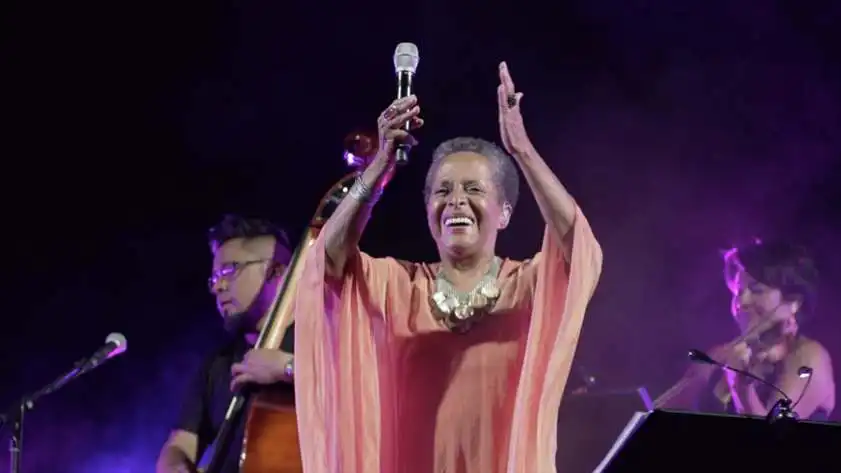




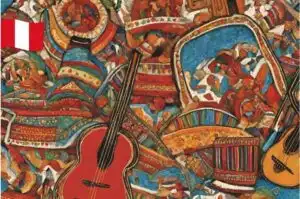


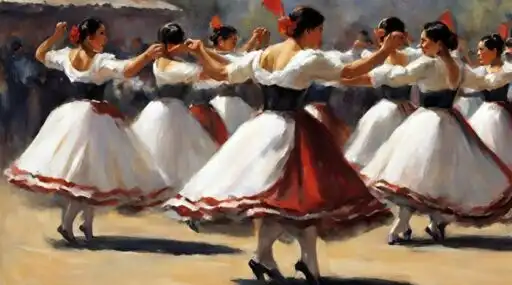









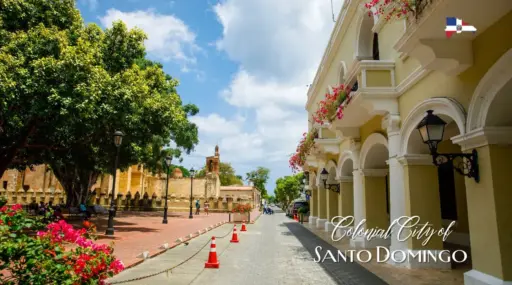


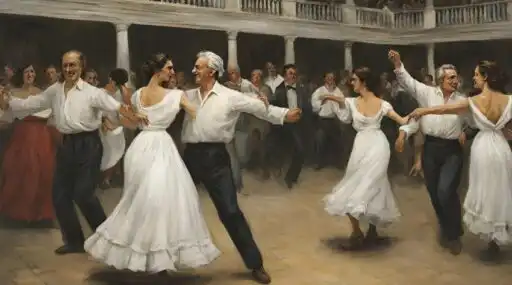
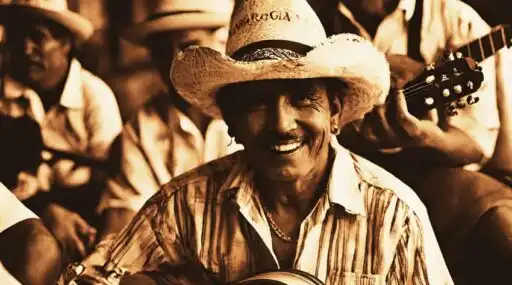

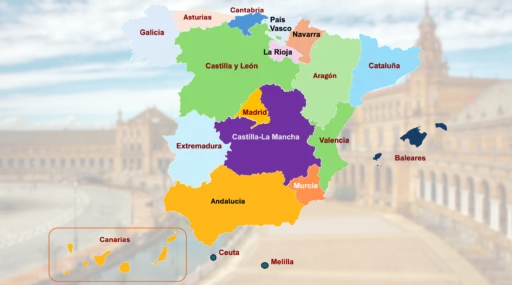






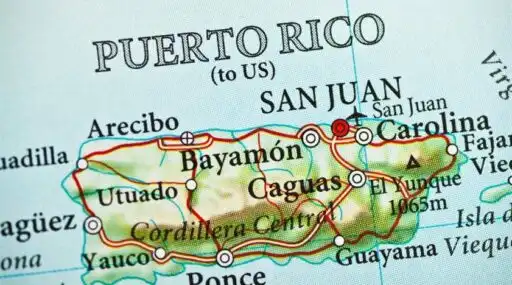



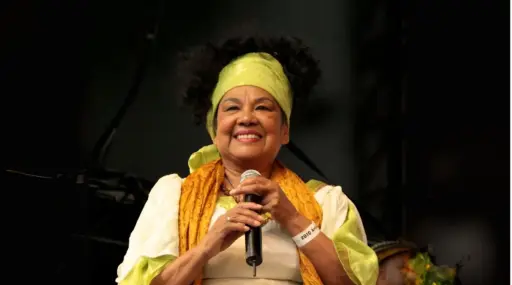
Leave a Reply